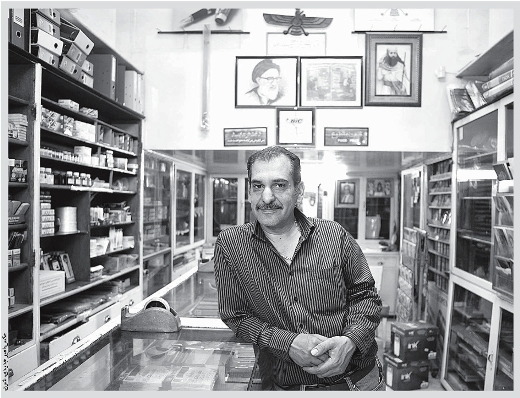In a special addendum to Sharq newspaper published on September 22, the daily tried to bring back the memories of forgotten soldiers who played an important role in the course of the Iran-Iraq war. The following is the translation of some parts of the addendum titled “Unsung Heroes”:
Even if you think of the value of a pawn on a chessboard, you will know that if it fights bitterly to the end, it can promote and give the queen a second chance to be on the battlefield again. If you are born a boy, everybody knows that you are supposed to do military service, either for a few months or for a few years. Coincidentally, if there is war, your service is particularly counted on. In the Iran-Iraq war, we were not short of brave heroes; in fact, there were as many as three million Iranian soldiers who have now been long forgotten. They are now remembered as war veterans.
One of those veterans of the Iraq war is Mohammad Bodaghi, who turned 18 when the war was in its 5th year. He fought in the war during his military service as an outstanding radio operator. In his opinion, the best moment for a radio operator is when the mortar is ready to be launched. After serving out his military service, he set pen to paper to write about the war, its operations, commanders, privates and so on. He believes that the epic of war has thousands of unsung heroes.
When asked about his family’s reaction when he had been en route to the frontlines, he said, “There used to be a public sentiment that I think our country will never experience again. I remember back then those who were doing their military service insisted on being sent to the frontline. Nobody was willing to stay at training camps.
We think of defending our country as our duty. Perhaps, it was the will of God that we became part of this history-making chapter of our country. Likewise, my family had the same feeling. For instance, once I wrote a letter to my family to reassure them that there was nothing to be worried about. I told them that I had been working in the kitchen.
Later, when I was back and came across the same letter, I saw that my little brother had drawn a line across “I am working in the kitchen” because my family felt ashamed of even saying that one of their own was working in the kitchen. All families were proud to say that their sons were fighting in the frontline.
The era of “Sacred Defense” is a very frank period in our country’s history. People from all walks of life worked sincerely and wholeheartedly to fulfill their commitments. People, particularly parents, gave selflessly whatever they had to soldiers who were fighting in the frontline. My two brothers and I all fought in the war. It’s true that the war came to an end and there is no longer a foxhole, no loud bangs of tank and mortar shells, but even after the Sacred Defense, we are still involved in it; I have been writing about it for the past 23 years.”
The principle in the frontline was defending our homeland.
Rostam Khoramdin is a Zoroastrian war veteran. In response to the question as to whether he was treated differently by his fellow comrades in arms, who were mostly Muslim, he said, “They never addressed me as a non-Muslim. The core principle was the fact that we were all Iranian.
My commander would tell me that he had been ordered to give religious minorities leave to attend their religious rituals. However, when I was the secretary of an army company, I wouldn’t take leave because I knew that we were undermanned. Anyway, in the frontline our obligation was to defend Iranian soil. Our priority was friendship between people there. There was no distinction between Muslims and non-Muslims. […]”
